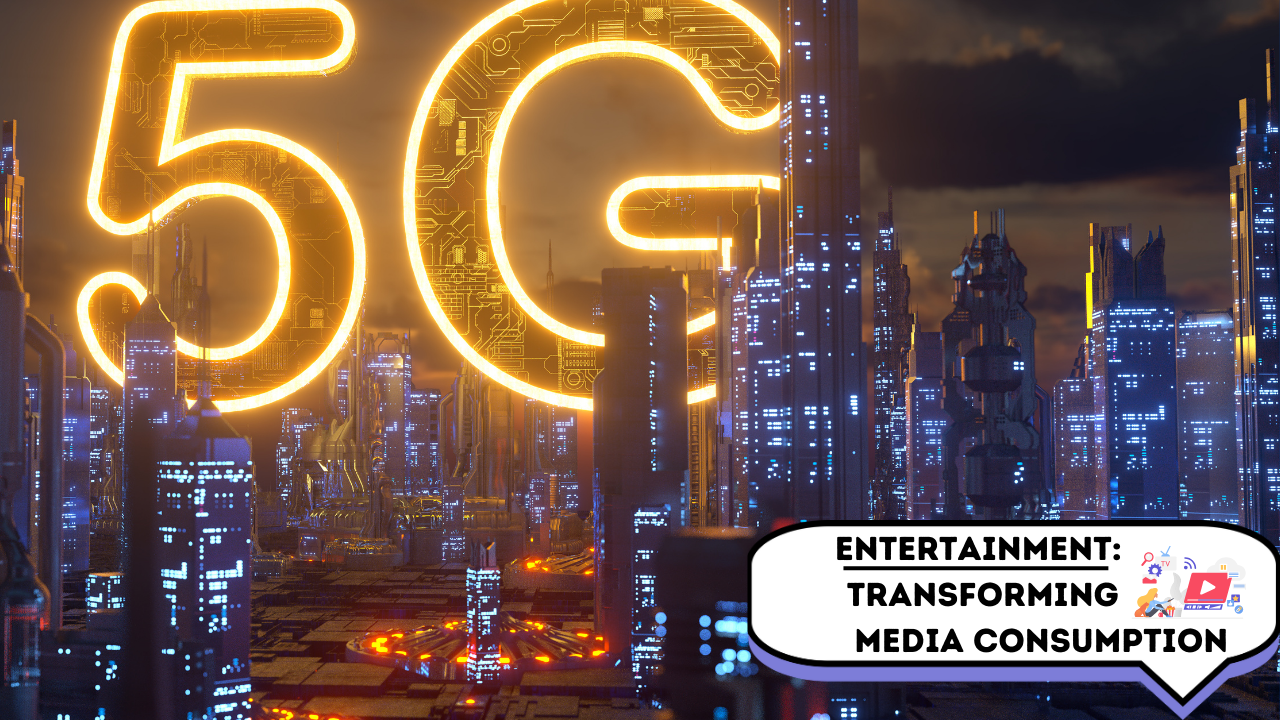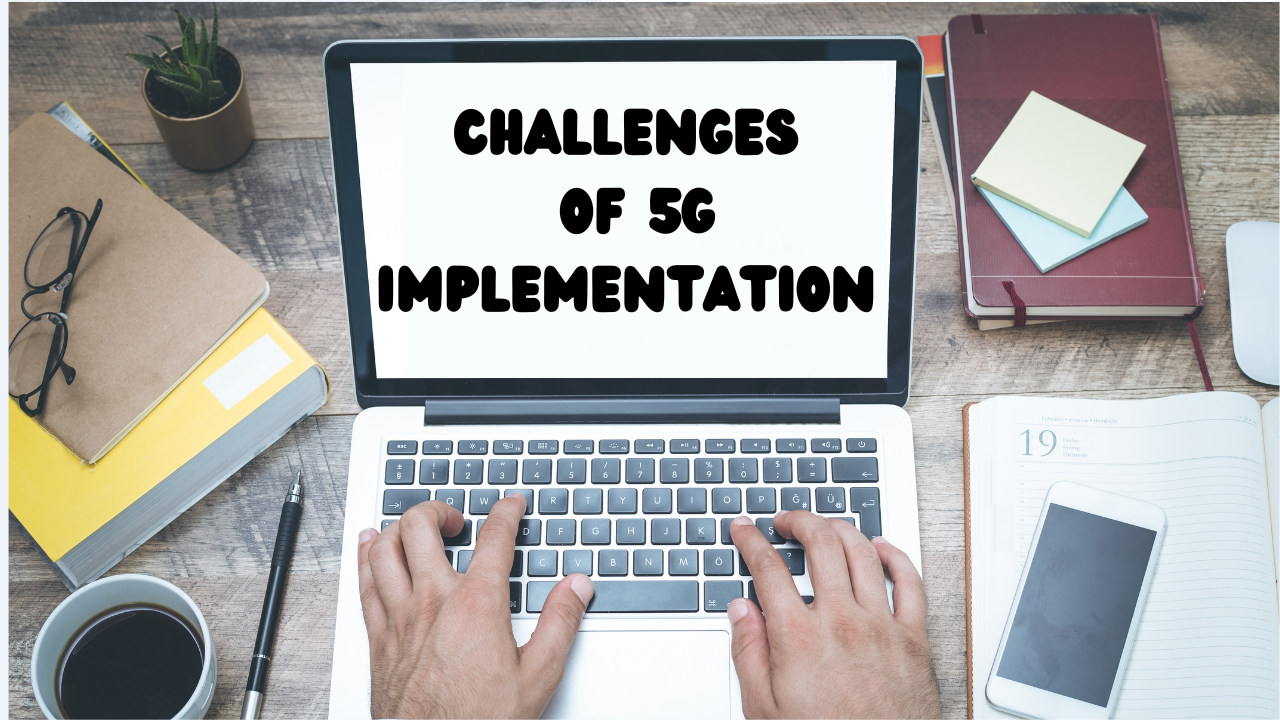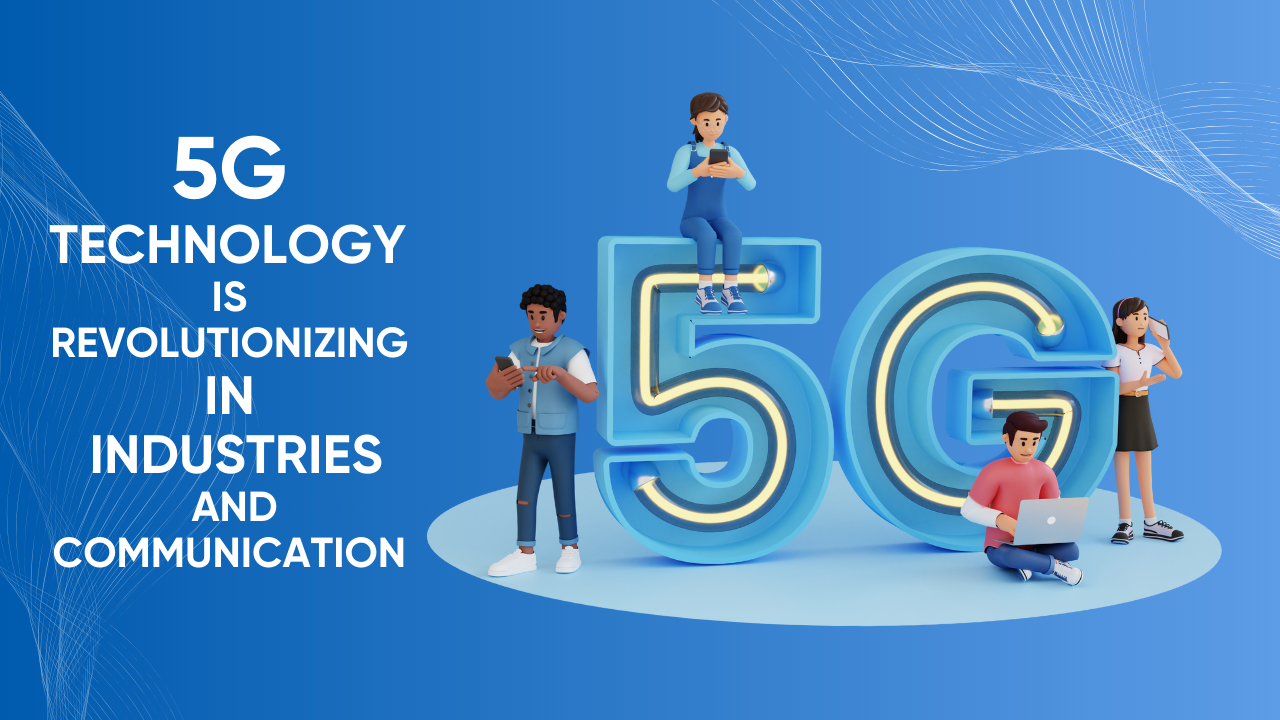In the past decade, we’ve witnessed significant advancements in communication technology, but none have been as transformative as the advent of 5G. The fifth-generation mobile network, 5G, is more than just an upgrade in mobile speeds—it’s a revolution that’s set to change the way industries operate and how we communicate. Promising ultra-fast speeds, low latency, and the capacity to connect millions of devices simultaneously, 5G is laying the foundation for innovations that could reshape our future.
From manufacturing and healthcare to transportation and entertainment, 5G technology is making waves across various sectors. In this article, we’ll dive deep into how 5G is revolutionizing industries and communication, discussing the technology’s impact, opportunities, and challenges.
The Evolution of 5G Technology
From 1G to 5G: A Brief History
Communication networks have evolved rapidly over the years. From the analog 1G in the 1980s, which enabled basic voice communication, to 2G’s introduction of text messaging and 3G’s mobile internet capabilities, each generation has brought new possibilities. The introduction of 4G was a game-changer, allowing for faster mobile internet, streaming, and the rise of social media platforms.
However, 5G isn’t just about faster speeds. It’s a complete overhaul of network infrastructure designed to support the growing demands of our increasingly digital and connected world. With its capacity to handle massive data traffic, 5G is poised to accelerate the Internet of Things (IoT) and artificial intelligence (AI) applications.
Key Features of 5G
5G technology has several standout features:
- Ultra-fast speeds: 5G can reach speeds of up to 10 Gbps, up to 100 times faster than 4G.
- Low latency: 5G offers a latency of just 1 millisecond, which is crucial for real-time applications such as autonomous driving.
- Massive device connectivity: 5G can support up to 1 million devices per square kilometer, allowing for unprecedented connectivity in smart cities and IoT applications.
5G’s Impact on Communication
Faster and More Reliable Mobile Networks
One of the most immediate benefits of 5G technology is faster and more reliable mobile communication. Users can expect near-instantaneous download and upload speeds, making buffering and lagging a thing of the past. This will significantly enhance the quality of video calls, streaming, and online gaming experiences.
Additionally, 5G’s ability to handle more devices without network congestion means that cities and densely populated areas will no longer suffer from slow mobile internet during peak usage times.
Enhanced Communication in Remote Areas
5G has the potential to bridge the digital divide by providing high-speed internet to rural and underserved areas. As 5G infrastructure expands, it will enable seamless communication in regions that have traditionally struggled with connectivity issues, allowing more people to participate in the global digital economy.
Revolutionizing Industries with 5G
The real power of 5G lies in its ability to transform industries by enabling new technologies and optimizing existing processes. Let’s explore how 5G is set to revolutionize key sectors.
Manufacturing: The Rise of Smart Factories
Automating Operations with IoT and 5G
5G is the backbone of Industry 4.0, which emphasizes the integration of IoT, AI, and advanced robotics into manufacturing processes. With 5G’s ultra-low latency and high bandwidth, smart factories can operate more efficiently. Machines can communicate with each other in real time, enabling predictive maintenance, reducing downtime, and improving productivity.
For instance, AI-powered robots can be deployed to perform repetitive or dangerous tasks, while IoT sensors can monitor equipment conditions and predict failures before they occur. This leads to safer working conditions and significant cost savings for manufacturers.
Real-Time Data for Better Decision-Making
5G enables the seamless collection and transmission of data from various points in the manufacturing process. Managers can use this data to make real-time decisions and optimize production schedules, inventory management, and supply chain logistics. This real-time insight allows businesses to adapt to changing conditions quickly, making operations more agile and responsive.
Healthcare: Telemedicine and Beyond
The Telemedicine Boom
One of the most significant impacts of 5G in healthcare is the advancement of telemedicine. With the COVID-19 pandemic accelerating the adoption of remote healthcare services, 5G is helping to make virtual doctor visits more reliable and efficient. Its low latency ensures real-time communication between doctors and patients, reducing the chances of miscommunication.
Patients in rural or underserved areas can now access top-tier medical expertise without having to travel long distances. With 5G, doctors can perform high-definition video consultations, monitor patients remotely using wearable devices, and even conduct robotic surgeries from thousands of miles away.
Enhanced Medical Imaging and Remote Surgeries
5G’s high-speed and low-latency capabilities are enabling advancements in medical imaging and remote surgeries. Surgeons can now collaborate with specialists from around the world in real time using augmented and virtual reality (AR/VR) technologies. This can improve surgical outcomes and provide access to expertise that may not be available locally.
Moreover, 5G allows for the transmission of large medical imaging files in seconds, enabling quicker diagnoses and more efficient treatment plans.
Transportation: Paving the Way for Autonomous Vehicles
Enabling Autonomous Driving
Autonomous vehicles rely on real-time data to make split-second decisions, such as avoiding obstacles or adjusting speed based on traffic conditions. 5G’s low latency and high reliability make it possible for autonomous vehicles to communicate with each other, traffic lights, and other road infrastructure in real time.
This will lead to safer and more efficient roadways, reducing accidents caused by human error and optimizing traffic flow. Cities are already testing 5G-powered autonomous buses and delivery vehicles, paving the way for a future where self-driving cars become the norm.
Smart Traffic Management Systems
5G will also revolutionize traffic management by enabling smart traffic systems. These systems use IoT sensors and AI to monitor traffic conditions and adjust traffic signals in real time to reduce congestion. This can lead to shorter commute times, reduced emissions, and better overall urban mobility.
Entertainment: Transforming Media Consumption
The Future of AR and VR
The entertainment industry is set to be one of the biggest beneficiaries of 5G technology. With 5G’s high-speed and low-latency capabilities, immersive technologies such as augmented reality (AR) and virtual reality (VR) will become more accessible and widespread. Consumers will be able to enjoy high-quality VR experiences without the need for expensive hardware or wired connections.
This could revolutionize industries such as gaming, where players can engage in fully immersive environments, or live events, where fans can attend concerts or sporting events virtually, experiencing them as if they were there in person.
Enhanced Streaming Services
5G will also take video streaming to the next level. With faster download and upload speeds, streaming services will be able to deliver 4K and even 8K content seamlessly. This will improve the quality of live events, video conferencing, and on-demand content, creating a more enjoyable and uninterrupted viewing experience for users.
Retail: Revolutionizing Customer Experiences
Personalized Shopping with AI
In the retail sector, 5G is enabling more personalized shopping experiences. AI-powered chatbots, virtual fitting rooms, and personalized recommendations are becoming more common thanks to 5G’s ability to handle large amounts of data quickly. Retailers can use this data to create tailored experiences for customers, improving satisfaction and boosting sales.
Faster Mobile Payments and Checkout Processes
With 5G, mobile payment systems will become faster and more secure. This is particularly important in an era where contactless payments are on the rise. Retailers will also be able to implement self-checkout kiosks and mobile apps that allow customers to complete their purchases without waiting in line, creating a more convenient shopping experience.
Agriculture: Smart Farming Solutions
Precision Agriculture with 5G
5G is transforming agriculture by enabling precision farming techniques. Farmers can use IoT sensors and drones to monitor soil conditions, crop health, and weather patterns in real time. This allows for more efficient use of resources, such as water and fertilizers, leading to higher crop yields and reduced environmental impact.
Autonomous Farming Equipment
With 5G, farmers can deploy autonomous tractors and harvesters that operate independently, reducing labor costs and increasing efficiency. These machines can be remotely monitored and controlled, allowing farmers to manage their fields more effectively.
Challenges of 5G Implementation
Infrastructure and Costs
While the potential of 5G is vast, implementing the technology comes with its own set of challenges. Building the necessary infrastructure for 5G networks, such as installing new cell towers and upgrading existing ones, is a costly and time-consuming process. This is particularly challenging in rural areas, where there is less economic incentive for providers to invest in infrastructure.
Security Concerns
As 5G networks connect more devices and handle larger amounts of data, they also become more vulnerable to cyberattacks. Ensuring the security and privacy of 5G networks will be critical to prevent data breaches and protect sensitive information.
Conclusion
5G technology is more than just a faster mobile network—it’s a revolution that will transform industries and redefine communication as we know it. From enabling autonomous vehicles and telemedicine to revolutionizing manufacturing and agriculture, 5G is unlocking new possibilities that were previously unimaginable.
While there are challenges to overcome, such as infrastructure costs and security concerns, the benefits of 5G far outweigh the obstacles. As 5G continues to roll out across the globe, we can expect to see even more innovative applications that will reshape the future of business, communication, and everyday life.
FAQs
What is 5G technology?
5G is the fifth-generation mobile network that offers faster speeds, low latency, and the ability to connect millions of devices simultaneously.
How does 5G benefit businesses?
5G enables businesses to leverage IoT, AI, and automation for increased efficiency, real-time decision-making, and improved customer experiences.
What industries will 5G impact the most?
Industries such as manufacturing, healthcare, transportation, retail, and agriculture will see the most significant transformations due to 5G.
What are the challenges of 5G implementation?
The main challenges include infrastructure costs, security concerns, and ensuring equitable access to 5G networks, especially in rural areas.
How does 5G improve communication?
5G enhances communication by offering ultra-fast speeds, low latency, and reliable connectivity, enabling better video calls, streaming, and mobile internet experiences.

